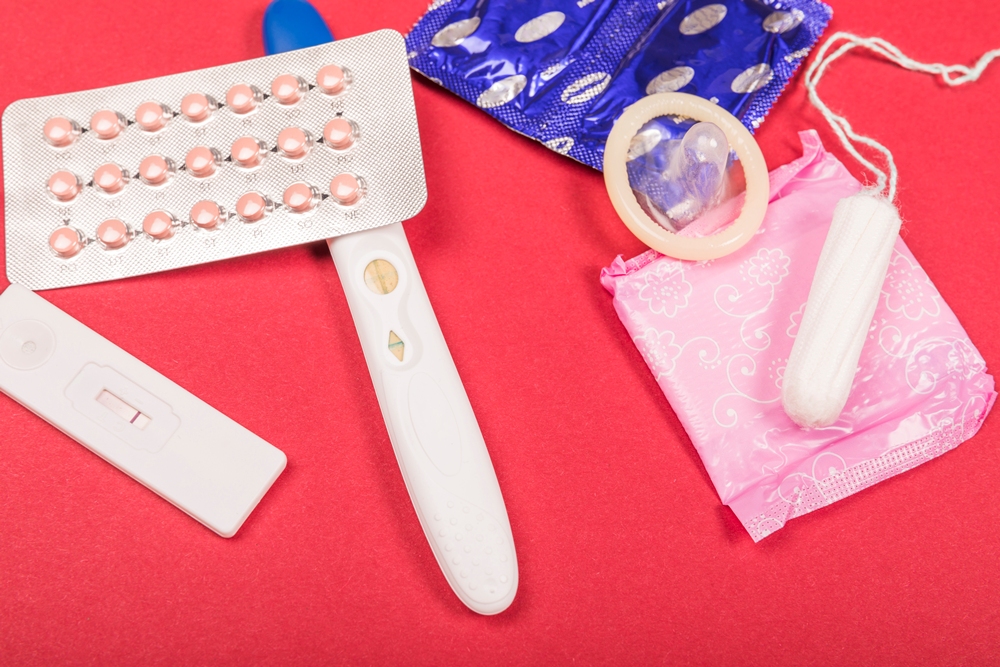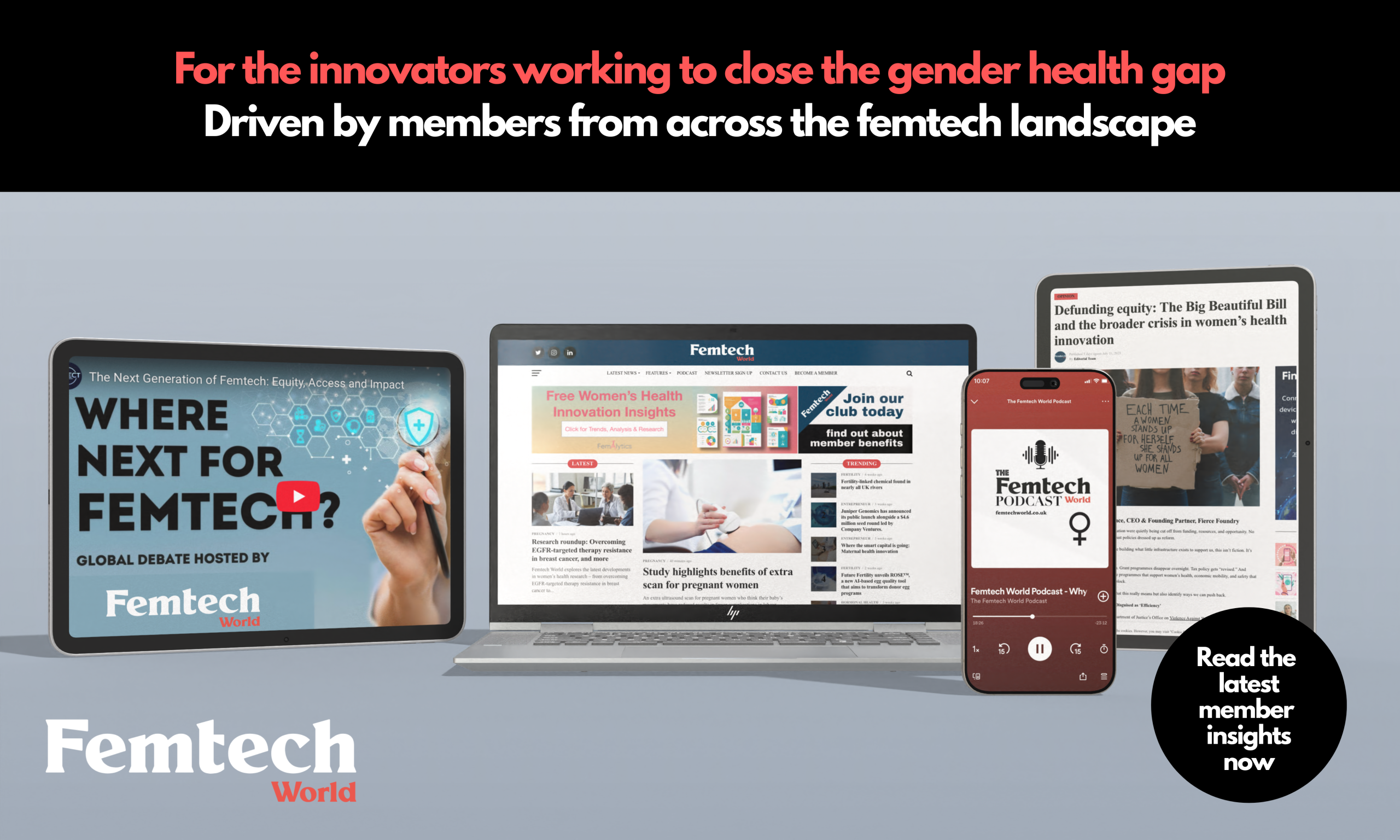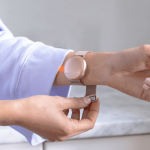Special
Five femtech start-ups taking over TikTok
As the global femtech market is growing, start-ups turn to the video-sharing platform to upscale their businesses

TikTok has amassed over 1.5 billion monthly active users in the third quarter of 2022. Now, more and more start-ups are using the social media platform to educate, raise awareness and give their businesses a boost.
Here are five femtech start-ups building new women-focused communities on the world’s most downloaded app.
Riley
The Irish start-up on a mission to end ‘period plastic’ aims to educate young and old users about periods and menstrual care, busting common health myths and breaking taboos.
After struggling to access period products themselves,
@we.are.riley

Key For Her
Key, an online platform offering supplement recommendations, information and insights, aims to help women understand their menstrual cycle and track their symptoms.
TikTok-famous founders, Donna Ledwidge and Renée O’Shaughnessy, now share tips and solutions for perimenopause, menopause, menstrual cycle, skin and hair with their 53,000 followers. @keyforher

Youly
The team behind Youly, Australia’s hassle-free emergency contraception service, speak honestly and openly about everything you need to know about the female body.
Having already amassed over 61,000 TikTok followers, the platform, part of the digital healthcare company Midnight Health, aims to break the stigma surrounding reproductive health and close the female health education gap. The history of brith control has never sounded so good. @youly.com.au
Peanut
The online platform Peanut provides a social network for women to connect across every life stage – from fertility, pregnancy and motherhood through to perimenopause and menopause.
Users have access to a community of women ready to listen, where they can share stories, ask questions, build friendships and learn from one another. @peanut

Juno Diagnostics
The US biotech company aims to support growing families through every step of the pregnancy journey by developing a range of affordable, non-invasive prenatal tests.
Now, Juno grows its TikTok presence by answering the most common pregnancy questions to empower families and aspiring parents with science and evidence-based information. @junodiagnostics

Cancer
HIV research paves way for new ovarian cancer therapies

HIV research has identified a new target for ovarian cancer by selectively blocking a cleft in the retinoblastoma protein that protects tumour-supporting macrophages.
The discovery could make ovarian – and potentially other – cancers more responsive to immunotherapies, treatments that use the body’s immune system to fight disease.
Scientists at the Wistar Institute found that targeting a specific cleft in the retinoblastoma protein removed only tumour-supporting macrophages while sparing those that fight disease.
Macrophages are immune cells that can either attack tumours or shield them from harm.
The work builds on decades of HIV studies led by Dr Luis Montaner, executive vice president of the Wistar Institute and director of its HIV Cure and Viral Diseases Center.
Montaner said: “This target emerged from our work understanding how macrophages survive HIV infection.
“It shows how insights from one field of medicine can inform breakthroughs in another.”
Targeting tumour-protecting macrophages without harming beneficial ones has long been a challenge.
Wistar researchers showed that selectively inhibiting this protein cleft depleted only tumour-supporting macrophages, leaving protective immune cells intact. Animal studies confirmed tumour shrinkage using this approach.
Montaner said: “This is a first-in-kind target against a solid tumour.
“It opens new avenues for therapies that could complement existing immunotherapies.”
The study highlights the value of long-term, cross-disciplinary research. It took more than 10 years from the initial HIV-linked finding to identifying this cancer target.
Next steps include exploring applications in acute myeloid leukaemia, pancreatic cancer and combination therapies.
News
US incineration of contraceptives denies 1.4m African women and girls lifesaving care, NGO says

The US decision to incinerate US$9.7m worth of contraceptives is expected to result in 174,000 unintended pregnancies and 56,000 unsafe abortions across five African countries.
The medical supplies, many of which were not due to expire until between 2027 and 2029, would have supported more than 1.4 million women and girls in the Democratic Republic of Congo, Kenya, Tanzania, Zambia and Mali.
The products had already been manufactured, packaged and prepared for delivery. Around 77 per cent were earmarked for distribution in the five African nations.
The International Planned Parenthood Federation (IPPF), a global healthcare provider and advocate for sexual and reproductive rights, offered to take the contraceptives for redistribution at no cost to US taxpayers. The offer was declined.
IPPF said the decision would deny women and girls in the affected countries access to lifesaving care.
Tanzania will be hardest hit, losing more than 1 million injectable doses and 365,100 implants – small devices inserted under the skin that release hormones to prevent pregnancy.
This amounts to 28 per cent of the country’s total annual contraceptive need.
Dr Bakari, project coordinator at Umati, IPPF’s member association in Tanzania, said: “We are facing a major challenge.
“The impact of the USAID funding cuts has already significantly affected the provision of sexual and reproductive health services in Tanzania, leading to a shortage of contraceptive commodities, especially implants.
“This shortage has directly impacted clients’ choices regarding family planning uptake.”
In Mali, women will lose access to 1.2 million oral contraceptive pills and 95,800 implants, nearly one-quarter of the country’s annual requirement.
In Zambia, 48,400 implants and 295,000 injectable doses will no longer be available. In Kenya, 108,000 women will go without contraceptive implants.
Marie Evelyne Petrus-Barry, IPPF’s Africa regional director, called the move “appalling and extremely wasteful”.
She said: “These lifesaving medical supplies were destined to countries where access to reproductive care is already limited, and in some cases, part of a broader humanitarian response, such as in the DRC.
“The choice to incinerate them is unjustifiable.”
In Kenya, the cuts compound an already strained system.
Nelly Munyasia, executive director of the Reproductive Health Network in Kenya, said stocks of long-term contraceptives had already run out, and warned of further consequences.
She said: “There is a 46 per cent funding gap in Kenya’s national family planning programme,.
“These systemic setbacks come at a time when unmet need for contraception remains high. Nearly one in five girls aged 15 to 19 are already pregnant or has given birth.
“Unsafe abortions remain among the five leading causes of maternal deaths in Kenya.”
Munyasia also warned that health workers’ skills are being eroded and said a lack of contraceptive access would increase maternal deaths as more women seek unsafe abortions.
While Kenya’s 2010 constitution allows abortion when a pregnant person’s life or health is at risk, the 1963 penal code still criminalises the procedure.
As a result, healthcare providers often avoid offering abortion care, even in emergencies.
A US state department spokesperson confirmed last month that the decision to destroy the supplies had been authorised.
Reports indicated the products were to be incinerated in France, prompting the French government to say it was “following the situation closely” following objections from rights and family planning groups.
The state department said the contraceptives could not be sold or donated to “eligible buyers” due to US legal restrictions, which prohibit foreign aid to organisations that provide abortion services, counsel on abortion, or advocate for abortion rights overseas.
Special
Gates foundation pledges $2.5bn to ‘ignored’ women’s health issues

The Gates Foundation will invest US$2.5bn in women’s health research by 2030, it announced on Monday, focusing on conditions from preeclampsia to menopause.
The pledge is around one-third more than the foundation spent on women’s and maternal health research and development over the past five years.
It is also among the first major commitments since Bill Gates said he would give away his US$200bn fortune by 2045.
Gates said: “Women’s health continues to be ignored, underfunded and sidelined. Too many women still die from preventable causes or live in poor health,” said Gates.
“That must change.”
The new funding will support research into under-studied conditions affecting hundreds of millions of women in both high- and low-income countries.
These include preeclampsia – a pregnancy complication that causes high blood pressure – and gestational diabetes, as well as heavy menstrual bleeding, endometriosis and menopause.
Investment will focus on five priority areas: obstetric care and maternal immunisation; maternal health and nutrition; gynaecological and menstrual health; contraceptive innovation; and research into sexually transmitted infections.
The aim is to kickstart research, develop new products, and ensure equitable global access to treatments.
Just one per cent of healthcare research and innovation spending goes to female-specific conditions beyond cancer, according to a 2021 analysis by McKinsey & Co.
Dr Anita Zaidi, the foundation’s head of gender equality, said the field has been held back by data gaps and bias.
She noted that key questions remain unanswered – including how some medicines interact with the uterus.
She told Reuters: “If you look at the literature, there may be only 10 women who’ve been studied, ever.
“We don’t even have the answers to these basic questions.”
Zaidi said the US$2.5bn pledge is a “drop in the bucket” compared to what is needed, and called on governments, philanthropists and the private sector to step in.

 News10 hours ago
News10 hours agoMothers’, not fathers’, mental health directly linked to their children’s, study shows

 Menopause5 days ago
Menopause5 days agoNew report exposes perimenopause as biggest blind spot in women’s health

 Fertility8 hours ago
Fertility8 hours agoScientists turn human skin cells into eggs in IVF breakthrough

 News3 weeks ago
News3 weeks agoThe Future of femtech: Rebuilding the investment landscape

 News1 day ago
News1 day agoDaily pill could delay menopause ‘by years,’ study finds

 News4 weeks ago
News4 weeks agoUCL spin-out raises £2.5m to improve infant health with breast milk microbiome

 Menopause4 weeks ago
Menopause4 weeks agoWeightWatchers debuts menopause programme with Queen Latifah

 Diagnosis4 weeks ago
Diagnosis4 weeks agoWomen in UK with PCOS facing widespread failures in treatment, report finds































1 Comment